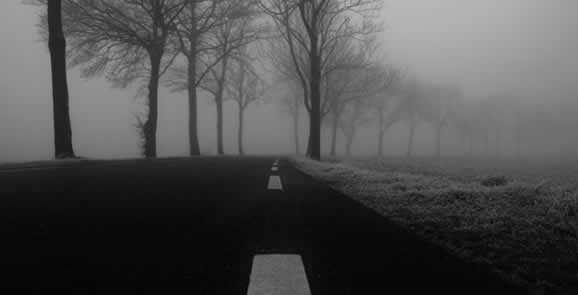What Is It About the Night that Causes Us to Wrestle with God?
Why does lying in bed at the end of a long day initiate on onslaught of worst-case scenarios, tomorrow’s concerns, or thoughts about death? Why does nighttime act like a beacon for our anxieties, insecurities, and deepest apprehensions? Void of the day’s distractions, to-do lists, and duties, night suddenly turns Pied Piper, summoning all the scary things near.
In my best friend, Jenn’s cancer case, it’s the raw vulnerability and reality of mortality. She’s defenseless, left insecure and off-balance. Will the stories she has believed stand true? Will her faith have been enough? Will she be enough? This kind of grapple with God cannot occur when we are strong and secure. Only when we are exposed and enervated to the point that we can’t not ask our hard questions, that’s when they materialize. Night questions are lighting-rod questions, powerful enough to scorch the earth. But they are also baby-deer questions, clumsy fawns that wobble, tremble, and fall feebly to the ground.
When we think of wrestling with God at night, we typically look to the story of Jacob, the famed God Grappler from Genesis 32. In my Bible, probably in yours as well, the subtitle of this story is “Jacob Wrestles with God.” But that’s not an entirely apt description. Because of the way the narrative unfolds, a more accurate subtitle would be something like “God Incites a Fight with Jacob.”
Jacob was sound asleep, alone by the Jabbok River. From there, the story’s unfolding is vague and sudden. But what we pick up, right from the jump, is that Jacob didn’t start the wrestling. God did. I can only use my imagination to fill in the missing details, but it almost reads like the God-man toed Jacob awake, provoking him. “Get up. You and me, kid. We’re going to settle your past, your questions, and your relationship with me, once and for all.”
The wrestling is not actually told from Jacob’s point of view. The God-man is the one who acts. Jacob is the one just having to respond.
- The man wrestled with Jacob (Genesis 32:24).
- The man saw that he could not overpower Jacob (Genesis 32:25).
- The man wrenched Jacob’s hip (Genesis 32:25).
- Then the man said, “Let me go, for it is daybreak” (Genesis 32:26).
- The man initiates their post-battle conversation, inviting Jacob to reply (Genesis 32:26-29).
God wrestled.
God saw.
God wrenched Jacob’s hip.
God said.
Truthfully, I don’t understand this story, just like I don’t understand Jenn’s story unfolding in front of me. Most pastors who preach on this text say something like “Jacob was only able to wrestle God all night because God allowed him to. Obviously, God could have overpowered Jacob at any moment.”
While that is true, maybe the point of this story is not about the fact that Jacob was able to wrestle with God all night. Maybe it’s that God goaded Jacob into the match.
Because we think it’s us, don’t we? We think it’s our doubts, our insecurities, our disillusionment. That’s what leads to wrestling matches with God. But what if God intentionally incites us to doubt, to struggle, to question our faith? And what if God has a good reason for it?
There’s a clue about this in the setting of Jacob’s wrestling match: the Jabbok River. In the names Jabbok and Jacob, the b and k sounds are inverted, swapped, mirrored. Furthermore, Jabbok means emptying. The storyteller of Genesis seems to imply that in the wrestling, God is emptying Jacob’s false identity out of him. Jacob, who was known as deceiver, receives a new identity, a new name, on the other side of this restless night with God.
Here’s what I think. I think all the bandages we mummy ourselves with in the night—our learnings, our achievements, our rigid beliefs, our certainty, our illusions of control, our proving-our-worth, our perfectly staged presentable-ness, all our posturing, even all our faux-authenticity, all the ways we try to make ourselves acceptable, all the managing of our identity that we do—I think God grabs hold of a loose strand of that material and begins tugging on it. I think God unwinds and unwinds and unwinds with more and more urgency until we are suddenly tornadoing, spinning, unraveling. And when we have slowed down and the dizzying effect has worn off, we are left exposed, disclosed. We are as we were always meant to be with God, naked and unashamed. And it’s right there—in the bottom layer, the underneath, the unsheathed self, the unveiled—where the healing happens. Otherwise, the healing is shallow. And God is in the deep. All the way down, that’s where God works. That’s where God wrestles.
There’s another wrestler in Scripture, a precursor to Jacob yet connected intimately to him. Jacob’s beloved (if not pained) wife Rachel wrestled to have a child. Her sister, one of Jacob’s many wives (you know, ’cause patriarchy) was giving birth to son after son after son. All the while, Rachel remained childless and heartbroken. When Rachel’s servant surrogate (again . . . patriarchy) finally gave birth to Jacob’s sons, Rachel declared, “I have had a mighty struggle . . . and I have won” (Genesis 30:8, author’s paraphrase). She named their second son Naphtali, which means my wrestle.
Interestingly, in Rachel’s mighty struggle, mighty is the same word used for God in Hebrew, Elohim. The Bible might as well be saying, “Rachel wrestled with her sister and with God and prevailed, and she named her son Wrestle.”
It’s eerily similar to what the God-man says to Jacob after their battle: “Because you have wrestled with God and with humans and prevailed, you will be called Israel, he who wrestles with God” (Genesis 32:28, author’s paraphrase).
What do we learn from these similar stories? We learn that we will wrestle through the night as part of our faith journey. That, though excruciating, the wrestling itself will reveal our true nature and will birth something new in us. And that God seems to incite it all. Again, God seems to very intentionally use the dark night. Maybe for our good. Most certainly for our transformation.
Adapted from What We Find in the Dark: Loss, Hope, and God’s Presence in Grief by Aubrey Sampson. Copyright © 2024. Used by permission of NavPress. All rights reserved. Represented by Tyndale House Publishers, a Division of Tyndale House Ministries.












